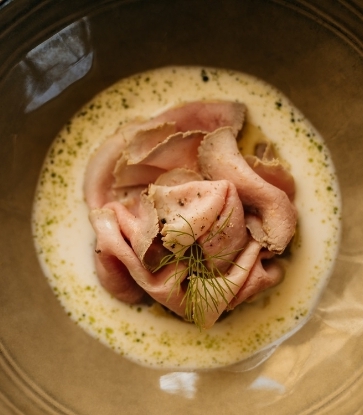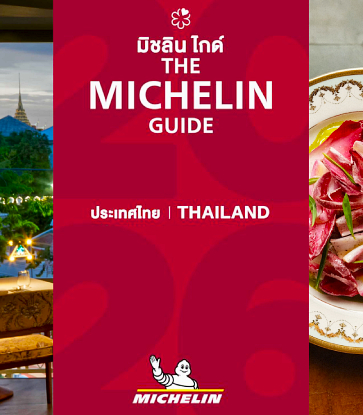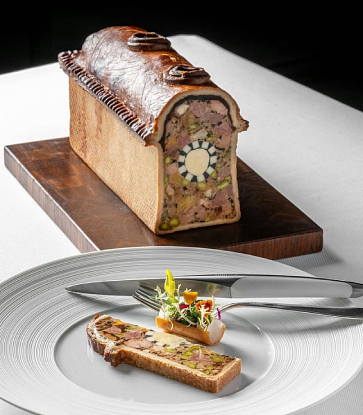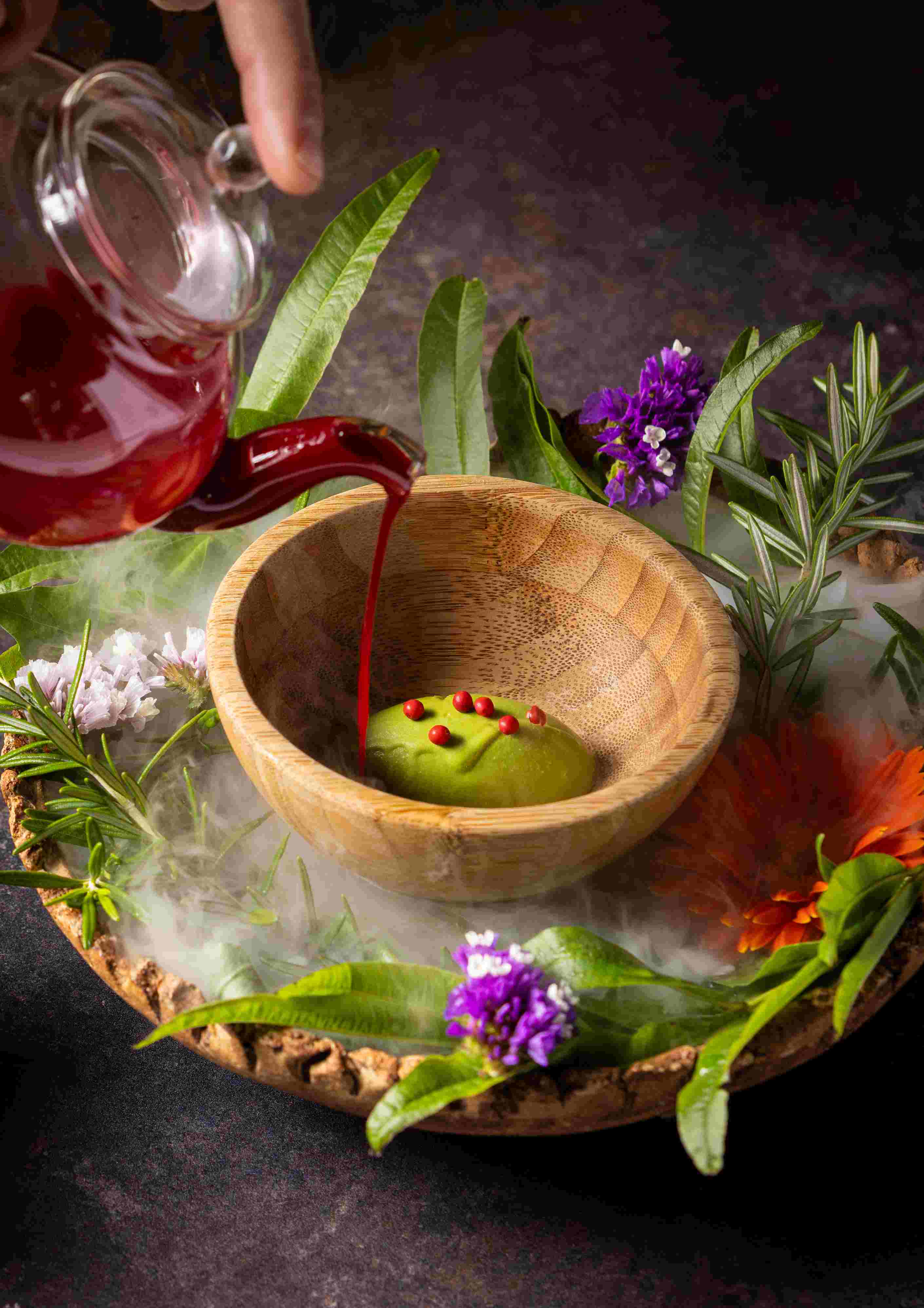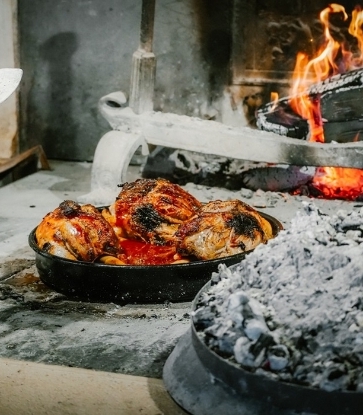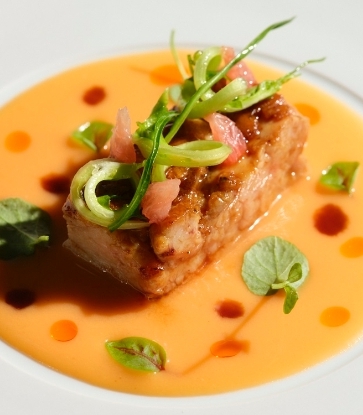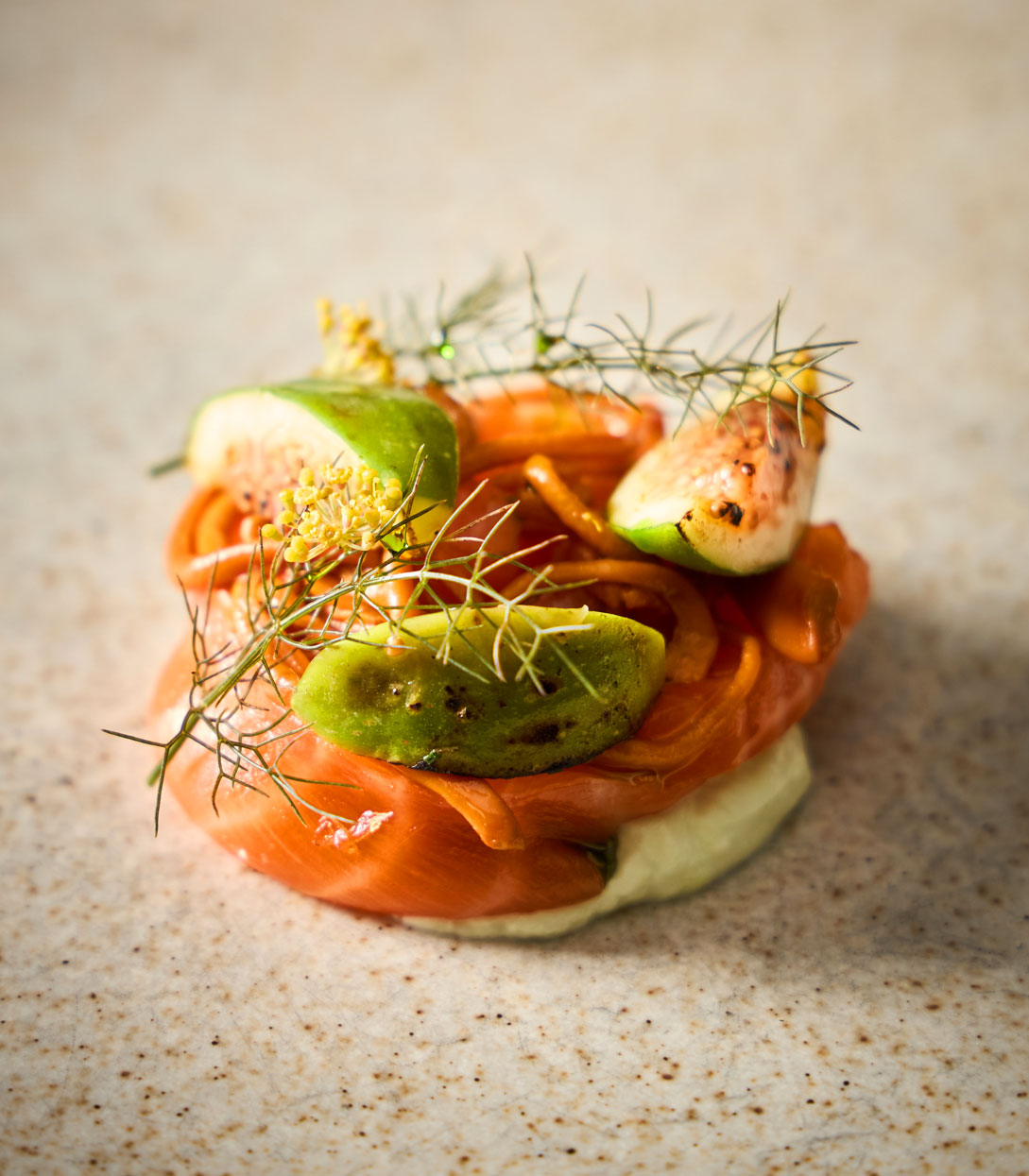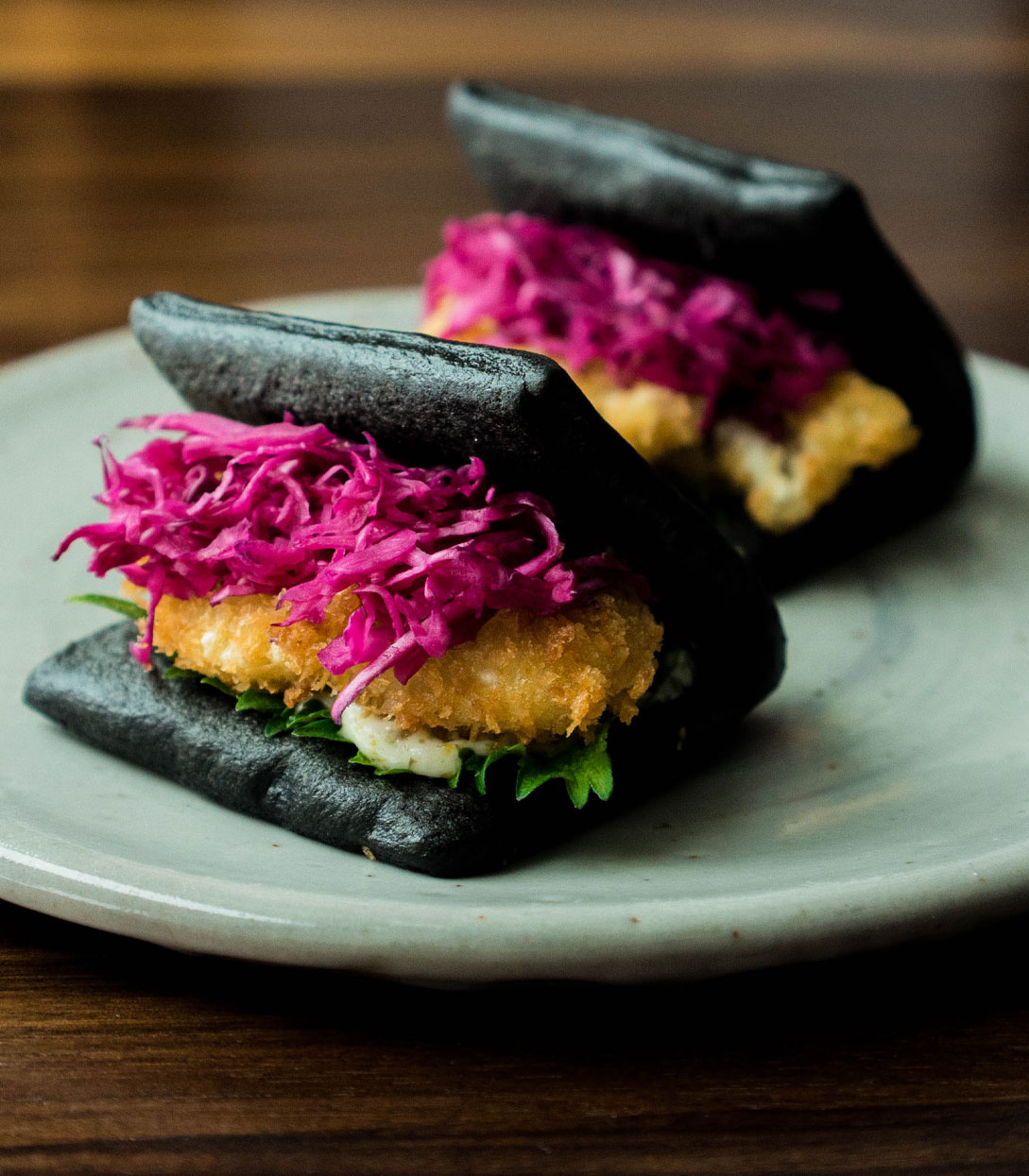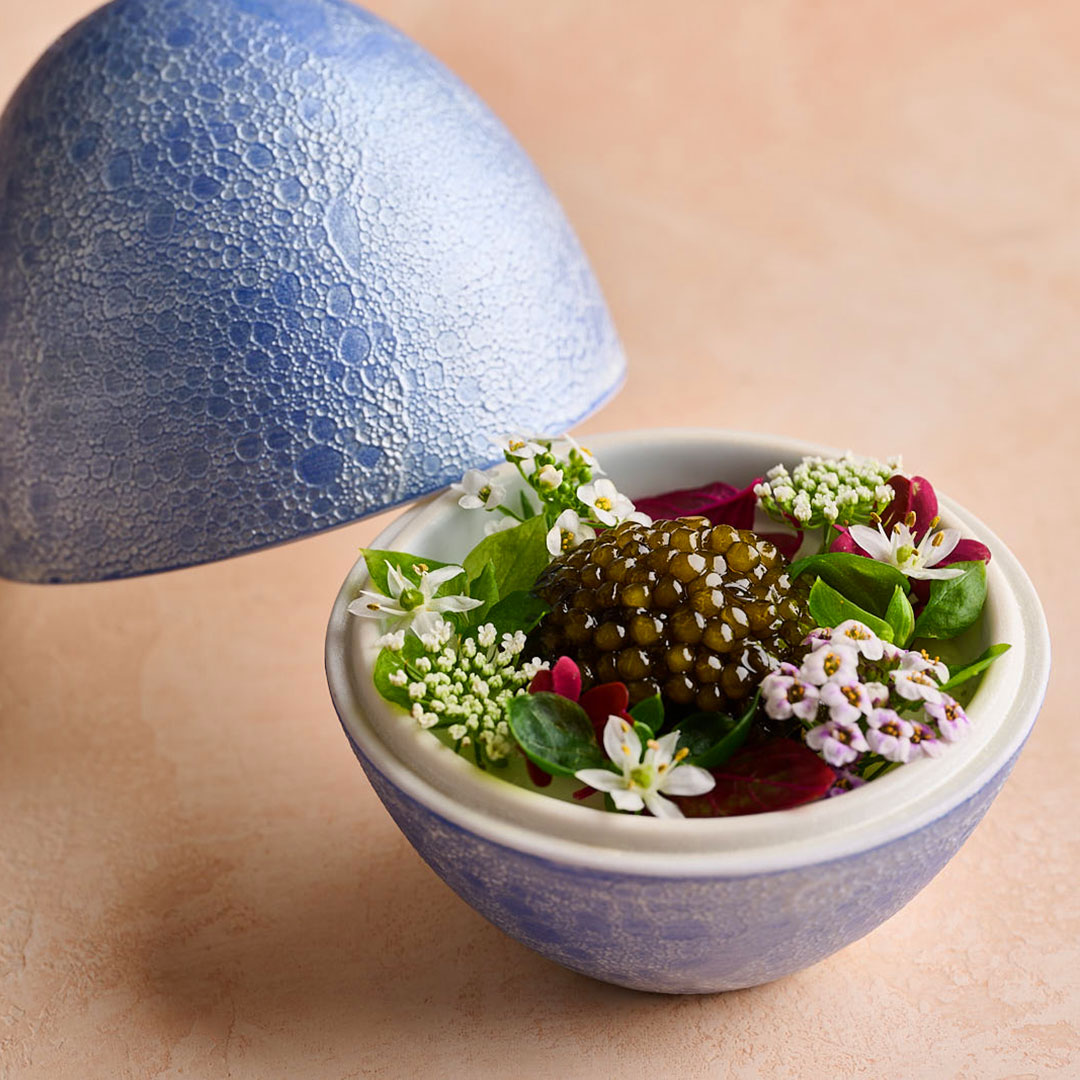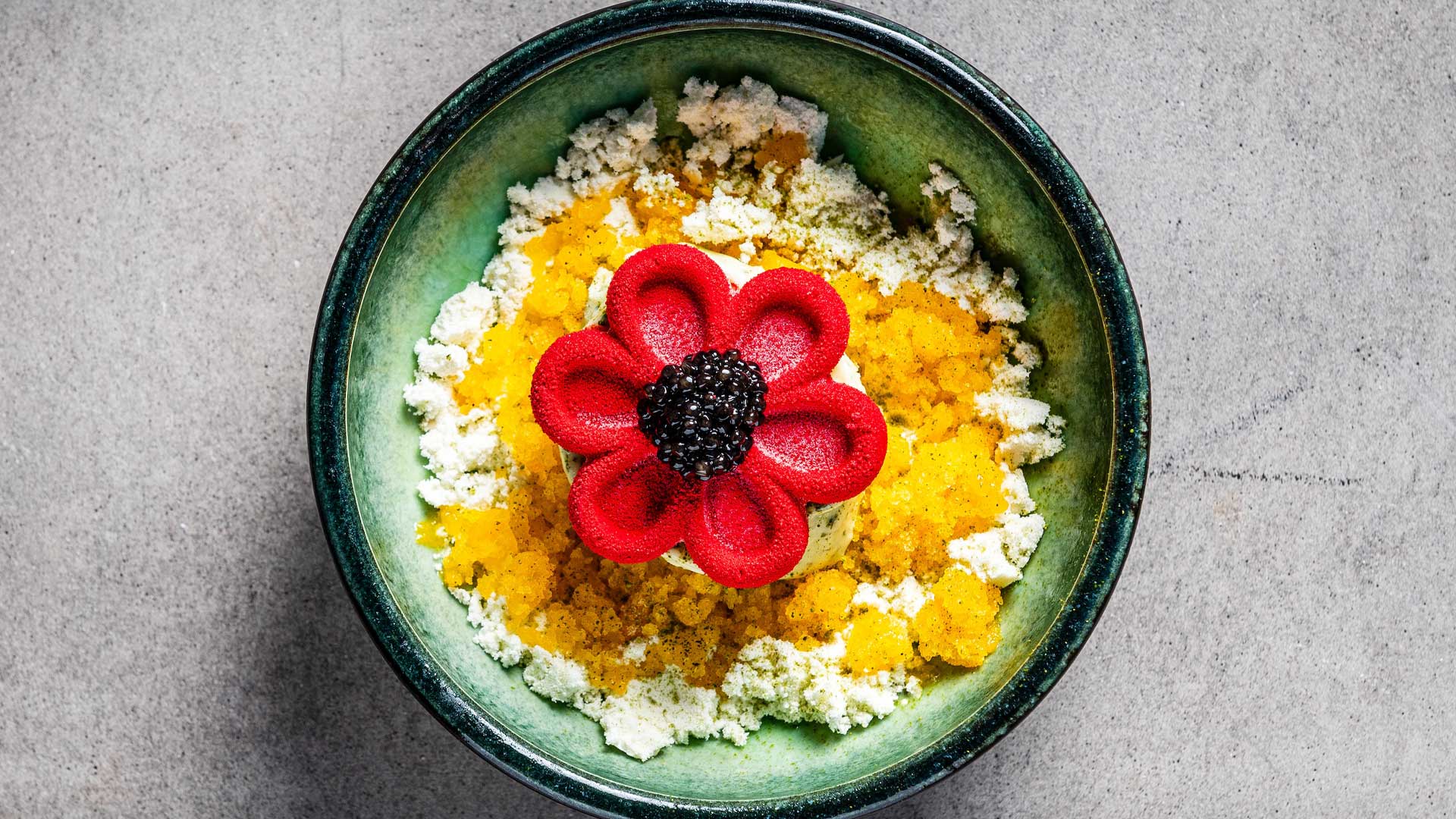The MICHELIN Green Star is awarded to restaurants who are at the forefront of the industry in sustainability. From sustainable cocktails to sustainable dining being a way of life in Baja California, these restaurants prove that being green can be just as tasty as their counterparts.
That’s why, whether it's educational workshops and internships or the world's first zero-waste restaurant that's transforming recycled bags into plates, we highlight Green Star restaurants across the United States to share their sustainability stories.
There is a reason why Chef Patrick O’Connell of Three MICHELIN Star and One Green Star The Inn at Little Washington is met with such critical acclaim. For over 40 years, the Washington, D.C. native has pushed the boundaries of American cuisine, utilizing sustainable practices and a philosophy on self-sufficiency to help pave the way.
But the way wasn’t always as clear cut as it is now. Before all the accolades and achievements, O’Connell was just another college student unsure of his future.
“It was the 60s, and we were reassessing and reevaluating our culture,” recalls Chef O’Connell. “We didn’t want to follow in the footsteps of our parents. We didn’t want to believe everything we were supposed to believe. I studied theater and journalism in college, but I had always gravitated toward restaurants and food.”
That feeling of uncertainty, combined with the encouragement from a professor to explore the world, lead to O’Connell’s first trip to France onboard the SS France. “I figured maybe the food thing will reveal itself.”
It was there that the young O’Connell stumbled upon a whole new world. “It was the first time I’d ever seen a crowd outside a pastry show window, each person elbowing the next to get closer to see these beautiful creations—it was something I had never imagined,” he explains. “Chefs were revered like sports figures; restaurants were like temples. Everything was beautiful.”
A seed had been planted. O’Connell just didn’t realize that yet.
Gaining a newfound sense of admiration, the aspiring chef decided to return to the United States (specifically Virginia) to explore the culinary world. “We [the catering company he had started with a friend] were in the middle of nowhere in the mountains of Virginia, with nothing but a wood-burning stove and an electric frying pan,” reminisces O’Connell. From small dinner parties to weddings, O’Connell’s catering business took off.
From there, the business relocated to an abandoned garage in Washington, VA. With $200 and half of a rundown garage, the acclaimed Inn at Little Washington was born. The seed that had been planted all those years ago during his time in France had blossomed into one of the most impressive culinary resumes in America.
Below, the celebrated chef takes us on a deep dive into his philosophy on sustainability, why it’s important, and everything in between.

What is your philosophy on sustainability?
We were just growing anything you could eat, like everyone else did here. The concept of sustainability and organic farming was just logical. If you had spare land, you went and bought some seeds to plant herbs and vegetables. Every season, we'd make applesauce, tomato sauce, and canned tomatoes and beans. Pretty soon, you had everything that you needed to get through the winter. There was this wonderful feeling of self-sufficiency, and that became part of my DNA.
The concept of sustainability has always just been logical to me. So, the idea that this is sort of a brand-new phenomenon, and everybody's trying to save the planet is always a little peculiar to me, because without thinking about it, in those days, it was just an adaptation of living in the country.
How do sourcing locally and sustainable practices affect the menu?
We pride ourselves on being able to give our guests a taste of something that they might not get anywhere else at that time in the world. We have a fascinating resident farmer, and he's created four huge greenhouses. He's raising huge crops of kale, wonderful little turnips, radishes, and tomatoes. We also have a tea master, and we’re going to be raising some of our teas this year.
More importantly though, we work with 4P Foods, which is a large network of local farmers in Virginia that prides themselves on returning the majority of the profit directly to the farmer (60% of everything you purchase goes directly to the farm, as opposed to the 14% that they normally would receive). This allows the farmers to grow most of our produce.
Tell us about a few of your most impactful initiatives.
One of the big delights and surprises for me was finding alternatives to the to-go line of products. All the plastics that we normally would have used in the past are now all eco-friendly.
Our water in this community comes from a web of various wells and springs that goes into a reservoir. It's very clean and pure spring water, which we offer to our guests. So instead of normal plastic water bottles, we instead offer a filtered water system with aluminum water bottles.
There is a lot of waste from our trim and the lesser cuts. How do you minimize that? Well, we feed a staff of 250, three meals a day. Take today, for example. We had a pasta bolognese for the staff meal, and every kind of little piece of trim or whatever is ground and goes into it. Delicious!
We've also found that llama dung is one of the best fertilizers in the world (not to mention that it's often solid and conveniently in a neat pile in the same place—they look like little rabbit pellets). Because they’re not caustic, you don’t need to compost it and can just spread it on any crop without burning the roots.
We’re doing all sorts of things with the Relais & Châteaux—an association of more than 500 members throughout the world in more than 50 countries—and we exchange ideas and best practices with them. Sustainability is the theme of that organization's current collective idea pool, and we just had a seminar in France with various chefs trying to inspire everyone else.

Why is sustainability important?
I think it's essential, and I think that our clients enjoy a place that cares about these important topics, and it's reassuring to them to know that we're making every effort we can to do our part. It has, oddly enough, created a little community of sharing ideas and best practices that is rewarding.
Ultimately, for me personally, it's about finding a balance that makes sense, and finding creative alternatives. We have this psychological dependency on something, and you're resistant at first to give it up, and then when you do, there's a great sense of, gee, I didn't need that at all. Turns out I can live perfectly fine without that.
What do you view as the future of zero waste/sustainability in gastronomy?
I think everybody will eventually join the party and get on board with how essential finding new solutions to be sustainable is going to be.
Have you incorporated any sustainable practices in your off-duty life?
The funny thing is, there is no off-duty life, and I'm not being facetious. To me, home is where you take all of your meals, and I eat everything (from lunch and dinner to snacks) here.
I do like stepping outside and putting whatever leftovers scraps I have in the compost pile outside the back door. It seems not only logical, but also a great luxury to know that it's going right back to the Earth.

What can other restaurants do to be more environmentally conscious?
Well, I think committing to this idea of networking and discovering. Sometimes, just opening yourself to what others are doing and the sincerity of their efforts is what matters.Recently, we had a nice conversation with Daniel Humm at Eleven Madison Park, and what struck me was the fact that we have all these ingrained habits that we've grown up with. Humm gave one example of, why do we all have to have turkey at Thanksgiving? Can't we outgrow that? At first you think, how could you have Thanksgiving without turkey? It would be heresy! Then you realize all the things, collectively as a culture that we have outgrown and given up. When I grew up, everyone smoked, and every movie that you went to, all the leads were smoking constantly. They were never without a cigarette. People were even being embalmed with a cigar in their hand because they were known for always having a cigarette—it was the norm. And then we all realized, my God, we're killing ourselves, and we can't be doing this. So, it's really about people putting forward ideas of what we need to give up and then we will.
My hope is that whatever compromises may have to be made along the way, it doesn’t compromise the experience of dining in a great restaurant—which should always be a joyous thrill and a luxurious, exhilarating, special, and life-changing experience.
Are you doing anything new and exciting at The Inn at Little Washington?
As a matter of fact, many things! We're currently building a spa, and it will feature many of the healing and medicinal plants that we grow. It will be a gorgeous space with a separate building with a beautiful view and an indoor and large outdoor pool.
The idea is that we'll incentivize our guests to stay longer than just one evening and explore our beautiful region and countryside a little bit more.

Hero image: Gordon Beall - The Inn at Little Washingon / The Inn at Little Washington






